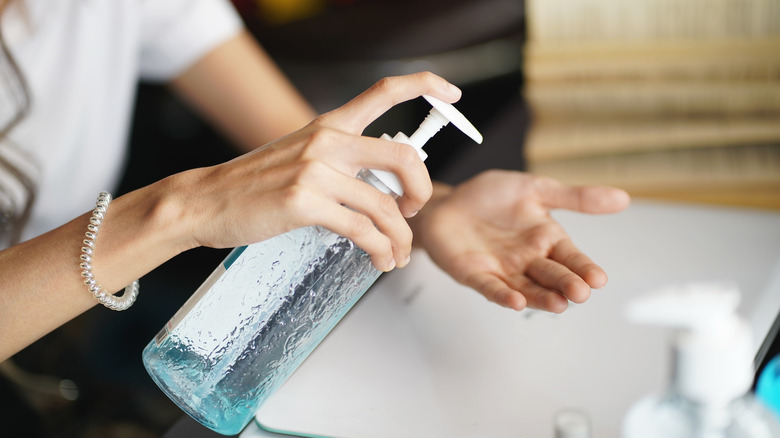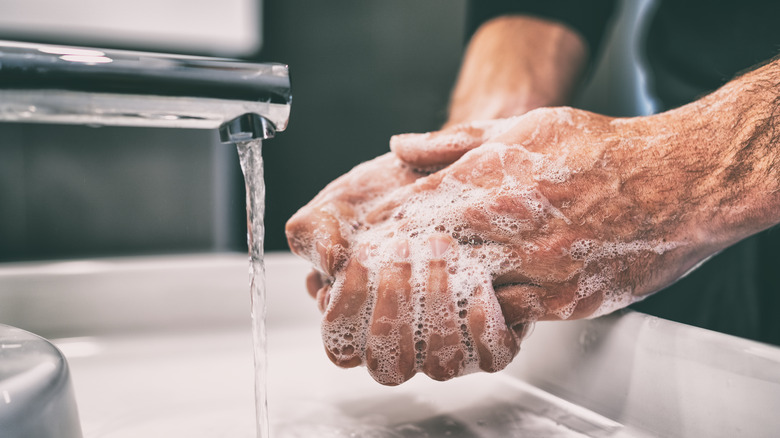Antibacterial Soap Vs. Regular Hand Soap: What's The Difference?
When deciding which soaps to purchase, you've likely come up against a familiar decision: Should you buy the antibacterial soap or the regular soap? While you might think the antibacterial soap will keep your family safer from germs, there is actually no scientific proof that shows using over-the-counter antibacterial soap is any better at preventing illness than regular soap and water, according to the U.S. Food & Drug Association (FDA). What's more, using antibacterial products over a long period of time have raised some concerns about negative health effects.
Antibacterial soap contains chemicals not found in regular soap meant to reduce or prevent bacterial infections. Questions remain about the effects of some of these ingredients on human health. Triclosan, for example, has been linked to hormonal changes in animals, raising concern it may affect people in a similar way, though more research is needed.
In 2016, the FDA ruled that antibacterial soaps containing the antibacterial ingredients triclosan and triclocarban would no longer be allowed to be marketed. As of this writing, the rule does not apply to other chemicals found in antibacterial soap. Manufacturers submit data so the FDA can determine the safety and efficacy of these ingredients. In the meantime, the FDA recommends consumers keep washing with plain soap and water.
The proper way to wash your hands
The Centers for Disease Control and Prevention (CDC) offers five steps to make sure you wash your hands properly. First, wet your hands with clean running water, which can be warm or cold, and then turn off the tap. Apply soap and lather your hands by rubbing them together. Scrub your hands for at least 20 seconds and don't forget to get between your fingers, the backs of your hands, and under your fingernails. A good way to ensure you're washing your hands long enough is to sing or hum the tune of "Happy Birthday" from beginning to end twice. Rinse your hands under clean, running water and dry them with a clean towel or let them air dry.
Make sure to wash your hands before, during, and after preparing food, and before and after meals. If you are sick, cleanse your hands frequently, especially after coughing, sneezing, and blowing your nose. Finally, always wash your hands after using the bathroom, touching an animal (or animal feed or animal waste), or touching garbage. You should also wash your hands before and after treating a wound, and before and after caring for someone who is ill.


